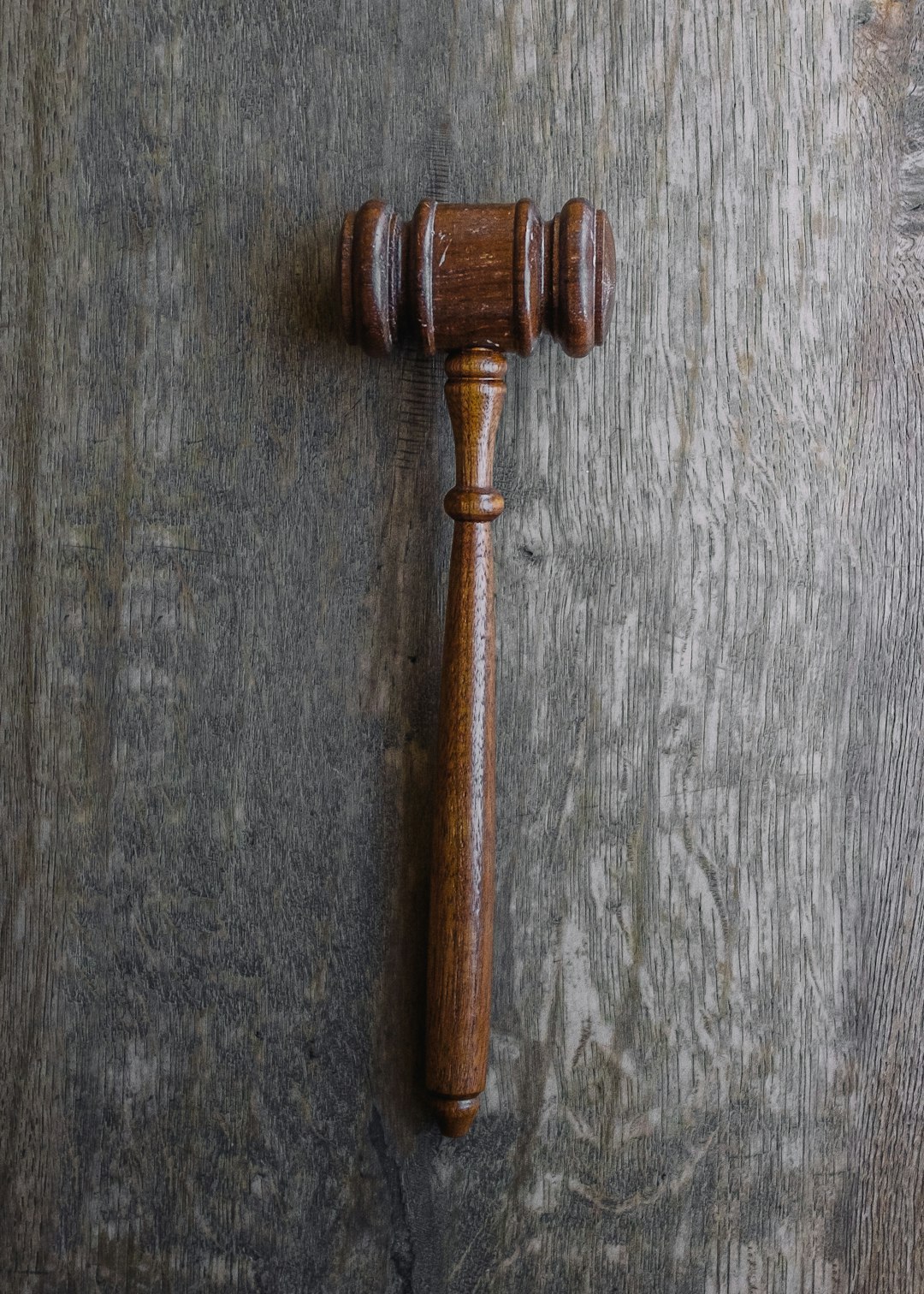

When faced with the unfortunate circumstance of medical malpractice, particularly related to anesthesia errors, finding the right lawyer is crucial. This journey begins with a clear understanding of your specific case and gathering all necessary medical records.
First, defining the specifics of your case involves detailing every aspect of the incident. Start by documenting the timeline: when you first sought treatment, what procedures were performed, when and how the anesthesia error occurred, and what immediate and long-term effects it has had on your health. This chronological account will serve as a backbone for your case.
Next, it's essential to gather all relevant medical records. These documents provide concrete evidence of the standard of care received and help establish whether there was a deviation from accepted medical practices. Your medical records should include hospital admission forms, surgical reports, anesthesia records, post-operative notes, follow-up visit details, and any correspondence between you and healthcare providers.
Once you have defined your case and compiled your records, the next step is finding a lawyer who specializes in medical malpractice cases involving anesthesia errors. Begin by seeking recommendations from trusted sources such as family members, friends, or other healthcare professionals who might know reputable attorneys in this field.
Additionally, organizations like state bar associations often have referral services that can connect you with qualified lawyers. Online resources are also valuable; websites dedicated to legal assistance frequently offer directories where you can filter searches based on specializations like medical malpractice.
When narrowing down potential lawyers, consider their experience specifically in cases involving anesthesia errors. A seasoned lawyer in this niche will understand the complexities involved-such as dosage miscalculations or failure to monitor vital signs-and will be familiar with expert witnesses who can testify about deviations from standard care.
Schedule consultations with a few top candidates to discuss your case details. During these meetings, inquire about their track record with similar cases: How many have they handled? What were the outcomes? Additionally, gauge their communication style and willingness to explain legal jargon transparently; you'll want someone who keeps you informed throughout the process.
Finally, consider logistical factors such as fees and payment structures. Some lawyers work on a contingency basis-meaning they only get paid if you win-while others may require upfront payments or hourly rates. Make sure you're comfortable with these terms before proceeding.
In summary, finding a competent lawyer for an anesthesia-related medical malpractice case requires careful preparation and research. By thoroughly defining your situation and gathering comprehensive medical documentation before consulting specialized attorneys, you'll be well-equipped to secure expert legal representation that can navigate this challenging terrain effectively.
Lawyer for medical malpractice lawsuits involving birth defects
medical malpractice lawyer Washington .Finding a lawyer who specializes in medical malpractice, particularly anesthesia errors, can be a daunting task. However, having the right legal representation is crucial to ensure that justice is served and adequate compensation is obtained. Here's a guide on how to find a qualified lawyer for such specialized cases.
Firstly, it's essential to understand why specialization matters. Medical malpractice law is complex and requires an attorney with specific expertise in both legal and medical fields. Anesthesia errors are even more specialized due to the technical nature of anesthesia practices and the severe consequences that can result from mistakes. Therefore, finding a lawyer who has experience with anesthesia-related cases increases your chances of success.
Start by seeking recommendations from trusted sources. Family members, friends, or colleagues who have previously dealt with similar issues can provide valuable insights and referrals. Personal recommendations often carry weight because they come from people you trust who have firsthand experience.
If personal referrals are not available, turn to professional organizations for guidance. The American Bar Association (ABA) offers directories and resources that can help you find specialized lawyers in your area. Additionally, state bar associations often maintain lists of attorneys by specialty. Another excellent resource is the American Association for Justice (AAJ), which provides information on trial lawyers specializing in various fields including medical malpractice.
Online databases and lawyer directories like Avvo, Martindale-Hubbell, and Super Lawyers are also invaluable tools. These platforms offer detailed profiles of attorneys including their areas of expertise, years of practice, client reviews, and ratings by peers. It's important to review these profiles carefully to gauge the lawyer's experience with anesthesia error cases specifically.
When narrowing down your choices, pay attention to the attorney's track record in handling anesthesia-related malpractice cases. Look for lawyers who have successfully litigated cases similar to yours and achieved favorable outcomes for their clients. Many attorneys offer free initial consultations where you can discuss your case without any obligation; use this opportunity to ask about their experience with anesthesia errors and their approach to handling such cases.
Credentials are another critical factor to consider. Ensure that the attorney you choose is licensed to practice in your state and holds relevant certifications or memberships in professional organizations related to medical malpractice law.
It's also beneficial to research any disciplinary actions or complaints against potential lawyers through state bar association websites or other regulatory bodies. A clean record indicates professionalism and ethical conduct.
Once you've identified a few potential candidates, schedule consultations with them to discuss your case in detail. During these meetings, assess not only their knowledge and expertise but also their communication skills and willingness to answer your questions thoroughly. A good lawyer should be able to explain complex legal concepts in a way that you can understand and should demonstrate genuine concern for your case.
In conclusion, finding a specialized lawyer for medical malpractice involving anesthesia errors involves thorough research and careful evaluation of potential candidates' experience, credentials, track records, and professional conduct. Leveraging personal referrals, professional organizations' resources, online directories, and initial consultations will help you identify the best attorney suited for your specific needs-ensuring that you receive competent legal representation during this challenging time.
Finding the best medical malpractice lawyer near you can be a daunting task, but it’s an essential one if you seek justice and fair compensation for any harm you've suffered.. The process involves several crucial steps: conducting thorough research, consulting with multiple professionals, and ultimately trusting your instincts. First and foremost, start with comprehensive research.

Posted by on 2024-09-17
When you're confronted with the intricacies of a medical malpractice case, securing qualified legal representation is essential to navigating the complex legal landscape effectively.. Medical malpractice is an area of law that demands specialized knowledge and experience due to its nuanced nature.

Posted by on 2024-09-17
When considering the cost of hiring a medical malpractice lawyer, it's crucial to understand the different payment models that attorneys may use.. Each model has its own set of advantages and disadvantages, and choosing the right one can significantly impact both your finances and the outcome of your case. One common payment model is the Contingency Fee arrangement.

Posted by on 2024-09-17
When faced with the unsettling suspicion of medical malpractice, it’s natural to be overwhelmed by a swirl of emotions and questions.. One of the most pressing concerns is what steps to take next: should you consider settlement options or prepare to go to trial?

Posted by on 2024-09-17
Navigating the complex landscape of medical malpractice can be daunting, especially if you're considering going it alone without the aid of a lawyer.. The good news is that there are numerous resources available to help you represent yourself effectively in these cases.

Posted by on 2024-09-17
Finding the right lawyer for a medical malpractice case involving anesthesia errors is a critical step towards achieving justice and obtaining compensation for any harm suffered. The complexity and technical nature of such cases necessitate a thorough vetting process to ensure that the attorney you choose possesses the necessary expertise and experience. Here's how to effectively check credentials and evaluate the track record of potential lawyers in this specialized field.
First, it's essential to verify the educational background and professional credentials of any lawyer you're considering. Confirm that they have graduated from an accredited law school and hold a valid license to practice law in your state. Additionally, membership in professional organizations such as the American Association for Justice or state-specific trial lawyer associations can be indicative of a commitment to ongoing education and advocacy in personal injury law.
Experience is paramount when dealing with medical malpractice cases, especially those involving anesthesia errors. An attorney who specializes in medical malpractice will be more familiar with the intricate details of healthcare regulations, medical terminology, and standard procedures for anesthesia administration. Look for lawyers who have dedicated a significant portion of their practice to handling similar cases. This specialization often translates into a deeper understanding of both legal strategies and medical issues pertinent to your case.
One effective way to gauge an attorney's experience is by reviewing their track record with similar cases. Ask potential lawyers about their history with anesthesia error claims specifically-how many such cases they've handled, what outcomes were achieved, and whether any went to trial or were settled out of court. Successful verdicts or settlements in past cases can provide some assurance that the lawyer has the necessary skills to advocate effectively on your behalf.
Client testimonials and reviews also offer valuable insights into an attorney's performance and client satisfaction. Many law firms feature testimonials on their websites, but it's wise to seek out independent reviews on platforms like Avvo or Martindale-Hubbell for unbiased opinions. These reviews can highlight strengths such as communication skills, responsiveness, empathy, and overall effectiveness in handling complex medical malpractice claims.
Furthermore, consider scheduling consultations with several attorneys before making your decision. During these meetings, discuss the specifics of your case and pay attention not only to their legal advice but also to how well they listen and respond to your concerns. A good lawyer should be able to explain complex legal concepts clearly and provide a realistic assessment of your case's strengths and challenges.
Lastly, don't underestimate the importance of personal rapport. Medical malpractice cases can be lengthy and emotionally draining; having an attorney you trust and feel comfortable with can make this difficult process more manageable.
In conclusion, finding a competent lawyer for an anesthesia-related medical malpractice case involves diligent research into their credentials, experience with similar cases, client feedback, and personal compatibility. By taking these steps seriously, you'll increase your chances of securing knowledgeable representation that can help navigate the complexities of your claim effectively.

When faced with the daunting task of finding a lawyer for medical malpractice related to anesthesia errors, it can feel overwhelming to know where to start. One crucial step in this process is reading client reviews and testimonials. These personal accounts offer invaluable insights into satisfaction and outcomes that go beyond what you might find on a lawyer's polished website or promotional materials.
Client reviews serve as a window into previous clients' experiences, providing real-world evidence of a lawyer's competence, approachability, and effectiveness. While credentials and professional accolades are important, they don't capture the human element that reviews do. For instance, did the lawyer communicate clearly and keep the client informed? Were they empathetic during an undoubtedly stressful time? These details matter immensely when you're dealing with something as serious as medical malpractice related to anesthesia errors.
Reading testimonials from clients who have encountered similar issues can also help set your expectations regarding outcomes. Malpractice cases involving anesthesia errors are often complex, requiring specialized knowledge not only of the law but also of medical procedures. A good review might highlight how effectively a lawyer navigated these complexities-whether through gathering compelling expert testimonies or skillfully managing courtroom dynamics.
Moreover, client feedback can shed light on less obvious aspects like fee structures and billing practices. Transparent financial dealings are crucial in legal matters; hidden fees or unclear payment terms can add stress to an already challenging situation. Reviews often touch on whether clients felt they received value for their money-a critical consideration when legal expenses can quickly escalate.
However, it's essential to approach reviews critically. Not every glowing testimonial means the lawyer will be right for you, just as not every negative comment signifies incompetence. Look for patterns rather than isolated opinions. Consistent praise for thorough preparation or recurring complaints about poor communication should weigh more heavily in your decision-making process than a single outlier review.
Additionally, diversifying your sources of client feedback is wise. Websites like Avvo, Martindale-Hubbell, and even Google Reviews provide platforms where past clients share their experiences openly. Visiting multiple sites helps ensure you get a well-rounded view rather than relying solely on one source that may be biased.
In conclusion, reading client reviews and testimonials is an indispensable step when searching for a lawyer specializing in medical malpractice related to anesthesia errors. These firsthand accounts offer clarity on various aspects-from legal acumen and interpersonal skills to financial transparency-helping you make an informed decision during a critical time in your life.
Finding a lawyer for a medical malpractice case, particularly one related to anesthesia errors, can be an overwhelming process. The stakes are high, and the complexities involved require not just any legal representation, but one with specific expertise in medical malpractice and a deep understanding of anesthesia-related issues. One crucial step in this journey is to schedule initial consultations to discuss your case and evaluate the lawyer's approach.
The importance of these consultations cannot be overstated. They provide a valuable opportunity for you to gauge whether the attorney has the necessary experience and skill set to handle your case effectively. This face-to-face interaction allows you to present the details of your situation comprehensively while observing how attentively the lawyer listens and responds. Does the lawyer ask insightful questions? Do they seem genuinely interested in your plight? Their responsiveness during this initial meeting can often be a good indicator of how they will handle your case moving forward.
Moreover, initial consultations give you an insight into the lawyer's approach and methodology. Medical malpractice cases involving anesthesia errors are intricate; they require meticulous attention to detail and a strategic approach tailored specifically to medical nuances. During these consultations, inquire about their past experiences with similar cases success rates, challenges faced, strategies employed all these factors contribute significantly towards building your confidence in their capabilities. Understanding their track record can provide assurance that you're in capable hands.
Another critical aspect to observe during these meetings is communication style. Effective communication between you and your attorney is paramount throughout the legal process. Pay attention to how clearly they explain complex legal jargon or procedures associated with medical malpractice claims. Are they able to break down complicated concepts into understandable terms? A good lawyer should not only possess strong legal acumen but also be adept at conveying information clearly and empathetically.
Furthermore, use this time to discuss logistics fees, timelines, potential outcomes transparency on these fronts is crucial for avoiding surprises down the line. Clarify their fee structure: do they work on contingency (where they only get paid if you win) or do they charge hourly rates? Understanding these financial aspects upfront ensures that there are no misunderstandings later.
Lastly, trust your instincts during these consultations. Beyond credentials and experience lies an essential element: comfort level with your attorney. This person will be representing you through potentially stressful scenarios; hence feeling comfortable discussing sensitive information openly is vital.
In conclusion, scheduling initial consultations serves as a foundational step in finding the right lawyer for handling your medical malpractice case related to anesthesia errors. It offers invaluable insights into their expertise, approachability, communication skills, transparency regarding fees/timelines/outcomes - all pivotal elements contributing towards making an informed decision about entrusting them with such significant responsibility.
When seeking legal representation for a medical malpractice case, particularly one involving anesthesia errors, it is crucial to have a clear understanding of the financial aspects involved. Inquiring about fees, payment structures, and any upfront costs or retainer fees should be one of your top priorities. This knowledge will not only help you budget appropriately but also ensure that you are engaging with a lawyer whose services align with your financial situation.
First and foremost, it's important to ask potential lawyers about their fee structure. Medical malpractice cases can be complex and drawn out, often requiring substantial resources and time. Many attorneys in this field work on a contingency fee basis, meaning they only get paid if you win your case or secure a settlement. Typically, the contingency fee is a percentage of the award or settlement amount. While this can relieve some immediate financial pressure since there are no upfront costs, it's essential to understand what percentage the attorney will take and whether that percentage might change depending on various factors such as whether the case goes to trial or settles out of court.
In addition to contingency fees, inquire about other potential costs associated with your case. Even though you're not paying out-of-pocket for legal fees immediately, there may be other expenses like filing fees, expert witness fees, and administrative costs that could arise during the litigation process. Some attorneys might cover these costs upfront and deduct them from your final settlement or award; others may expect clients to pay these expenses as they occur. Clarifying this aspect early on can prevent unexpected financial stress later.
Upfront costs and retainer fees are another critical area to discuss. While many medical malpractice attorneys operate on a contingency basis, some may require an initial retainer fee-especially if they anticipate significant preliminary work before determining the viability of your case. This retainer is usually refundable if it turns out that pursuing legal action isn't feasible or advisable based on initial findings.
Transparency is key when discussing these issues with prospective lawyers. A reputable attorney should be willing to provide detailed information about their fees and any additional costs you might incur over the course of your case. They should also offer clear explanations in writing so that there's no room for misunderstanding later on.
Finding the right lawyer involves more than just assessing their expertise and track record; it requires ensuring that their financial terms are manageable for you. Taking the time to thoroughly inquire about fees, payment structures, and any upfront costs or retainer fees will go a long way in helping you make an informed decision when choosing legal representation for medical malpractice related to anesthesia errors.
By being proactive in these discussions, you'll be better prepared for what lies ahead financially while focusing on achieving justice for any wrongs done due to anesthesia-related medical negligence.
Finding the right lawyer for a medical malpractice case, especially one involving anesthesia errors, can be a daunting task. One critical factor in this search is assessing the communication style and comfort level you experience with potential lawyers during consultations. This step is crucial because it directly impacts how effectively you'll work together throughout what could be a lengthy and emotionally taxing legal process.
When you first meet with a lawyer, pay close attention to how they communicate. Do they listen attentively to your concerns? A good lawyer should not just hear but also understand the intricacies of your case, including the emotional toll it has taken on you and your loved ones. Effective communication is a two-way street; it's important that both parties feel understood and respected.
During these initial consultations, gauge whether the lawyer explains complex legal terms in plain language that you can easily grasp. Medical malpractice cases are inherently complicated, often involving detailed medical records and expert testimonies. A lawyer who can break down these complexities into understandable segments demonstrates not only their expertise but also their commitment to ensuring you're fully informed at every stage of the process.
Moreover, consider your own comfort level during these discussions. Do you feel at ease sharing personal details about your medical history and experiences? Trust is fundamental in any attorney-client relationship. If you feel uneasy or judged during these early interactions, it's likely that those feelings will persist as the case progresses.
It's also worth noting how responsive the lawyer is to your questions and concerns. Timeliness in addressing queries reflects their dedication to your case. An attorney who promptly returns calls or emails shows respect for your time and acknowledges the importance of keeping you updated.
Empathy plays a significant role here too. The best lawyers for medical malpractice cases often demonstrate genuine concern for their clients' well-being beyond just legal outcomes. They understand that you're dealing with more than just a lawsuit-you're coping with real pain and suffering caused by an anesthesia error.
Finally, consider seeking feedback from previous clients if possible. Reviews and testimonials can provide valuable insights into how others felt about their communication experiences with the same lawyer.
In summary, while expertise and track record are undeniably important factors when choosing a lawyer for an anesthesia-related medical malpractice case, do not underestimate the value of effective communication and personal comfort level during consultations. These elements form the foundation of a successful attorney-client relationship, enabling better collaboration and ultimately increasing your chances of achieving a favorable outcome.
Finding the right lawyer for a medical malpractice case, particularly one involving anesthesia errors, is a crucial step that requires careful consideration. Making an informed decision based on thorough research, consultations, and evaluating the overall fit for your needs can significantly impact the outcome of your case.
First and foremost, conducting comprehensive research is essential. Start by seeking recommendations from trusted sources such as family members, friends, or healthcare professionals. Additionally, online resources like legal directories and review sites can provide valuable insights into potential candidates. Pay attention to lawyers who specialize in medical malpractice cases with a focus on anesthesia errors; their expertise in this niche area will be invaluable.
Moreover, professional organizations such as the American Bar Association or state-specific bar associations often have referral services that can guide you to qualified attorneys in your area. These organizations typically maintain strict standards for their members, ensuring you are connected with reputable professionals.
Once you have compiled a list of potential lawyers, it's time to schedule consultations. Many attorneys offer free initial consultations where you can discuss your case and assess whether they are the right fit for you. During these meetings, inquire about their experience with medical malpractice cases involving anesthesia errors specifically. Ask about their track record of success in similar cases and request references if possible.
Be observant during these consultations: assess not only their legal acumen but also their communication skills and empathy towards your situation. A lawyer who listens carefully and demonstrates genuine concern for your well-being is more likely to represent your interests effectively.
Evaluating the overall fit goes beyond just qualifications and experience; consider practical aspects too. Discuss fee structures upfront to avoid any surprises later on. Some lawyers may work on a contingency basis, meaning they only get paid if you win your case this can be beneficial if upfront costs are a concern.
Additionally, evaluate their availability and responsiveness; you want an attorney who is accessible when needed and keeps you informed throughout the process. Trust your instincts if something feels off during these interactions, it's okay to continue searching until you find someone who meets all your criteria.
In conclusion, finding a lawyer for medical malpractice related to anesthesia errors involves diligent research, thoughtful consultations, and assessing the overall suitability for your unique needs. By following these steps meticulously, you increase the likelihood of securing competent legal representation that will advocate effectively on your behalf during this challenging time.